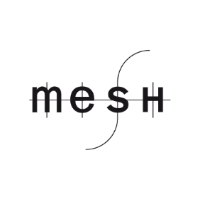Friday/Saturday (April 12, 2024 – July 12, 2024) | 5 Block Sessions
Auerbach Library: Weyertal 59, 3rd floor; Ethno Library: Albertus-Magnus-Platz, Hauptgebäude; Zoom
Preliminary Meeting (mandatory): Friday, 12 April 2024, 10:00 – 11:30, online
Session: Concepts and Methodologies: Friday, 17 May 2024, 14.00 – 19.00, Ethno Library
Session: Field Excursion – Sensing Walk: Friday, 21 June 2024, 14.00 – 19.00, Auerbach Library at MESH
Session: Data Mapping Session: Saturday, 22 June 2024, 9.00 – 14.00, Auerbach Library at MESH
Session: Poster / Group Presentation: Friday, 12 July 2024, 14.00 – 19.00, Auerbach Library at MESH
In response to environmental and political crises and in facing its problematic legacy as a colonial, extractive discipline, anthropology has increasingly been reimagined as an engaged and of collaborative research practice. The seminar’s aim is to introduce new concepts and methodologies in anthropology and the environmental humanities that are situated at the intersection of politics, publics, arts, and the environmental sciences. The goal is to explore modes of sociotechnical sensing and engagement with (more-than-human) sense making. The seminar’s focus lies on citizen science and communal initiatives that monitor urban pollution, toxicity in water and air (and waste) and employ sensing technologies to engage with environmental issues and local stakeholders including government officials and environmental agencies (Nading 2020).
Conceptually, the seminar draws on what indigenous rights activist and anthropologist Michelle Murphy calls the task of “generating alter-concepts of care and responsibility” by experimenting with “alter-modes of collaboration” (Murphy 2017, 496–497). Methodologically, the seminar will experiment with approaches of chemo-ethnography and chemo-sociality developed by Nicholas Shapiro and Eben Kirksey (Kirksey 2020; Shapiro and Kirksey 2017) as well as the approach of research creation(Loveless 2019; Hennessy et al. 2023) that hybridizes artistic and scientific approaches.
The seminar is organized as a block seminar. In the first introductory session will develop an overview about crucial concepts and methodologies. During the second session we will go on a field trip and sensory walk for an initial experimentation that will be discussed and reflected upon in the third session. In the fourth and concluding session students will present group works based on their own explorations and engagement with the seminar topics.
Seminar addresses advanced Master students who are interested in environmental issues, collaborative research methods and decolonial, feminist theories at the intersection of politics, publics, arts, and anthropology. The seminar will give an overview about current debates, concepts and methodologies of anthropologies of pollution, toxicity and waste, and public and artistic engagement. Participants will be able to reflect on their responsibilities as anthropologists and individuals in times of multiple crises.
Participation Requirements
For the block seminar, study achievements (3 CP) can be earned by actively participating in the group works and presentations of all four sessions. The groups and topics will be assigned during the preliminary meeting on 12 April on Zoom. The attendance is mandatory.
Study achievements plus combined module examination (6 CP): For the combined module examination, a poster presentation and discussion in the last session ca. 30 minutes is required for the oral examination part (important: the presentation is additionally to the presentation of the first session!). The poster presentation should be based on the group work and provide a summary and critical reflection of the seminar’s topic. Based on the topic and the poster presentation, the written part of the examination will consist of a term paper of about 20 pages. Deadline here is 15 September, 2024.
Please note that a module examination is ONLY possible with previously completed study achievements!
Basic Texts for the Seminar
- Hennessy, Kate, Trudi Lynn Smith, Steve DiPaola, and Amineh Ahmadi Nejad. 2023. “SENSING THE CLOUD Research-Creation as Sensory Anthropology.” In The Routledge International Handbook of Sensory Ethnography, edited by Phillip Vannini, 248–262. London: Routledge.
- Kirksey, Eben. 2020. “Chemosociality in Multispecies Worlds: Endangered Frogs and Toxic Possibilities in Sydney.” Environmental Humanities 12 (1): 23–50. https://doi.org/10.1215/22011919-8142198.
- Loveless, Natalie. 2019. How to Make Art at the End of the World: A Manifesto for Research-Creation. Durham: Duke University Press.
- Murphy, Michelle. 2017. “Alterlife and Decolonial Chemical Relations.” Cultural Anthropology 32 (4): 494–503. https://doi.org/10.14506/ca32.4.02.
- Nading, Alex M. 2020. “Living in a Toxic World.” Annual Review of Anthropology 49 (1): 209–224. https://doi.org/10.1146/annurev-anthro-010220-074557.
- Shapiro, Nicholas, and Eben Kirksey. 2017. “Chemo-Ethnography: An Introduction.” Cultural Anthropology 32 (4): 481–493. https://doi.org/10.14506/ca32.4.01.
Further information for students of the University of Cologne: Klips
